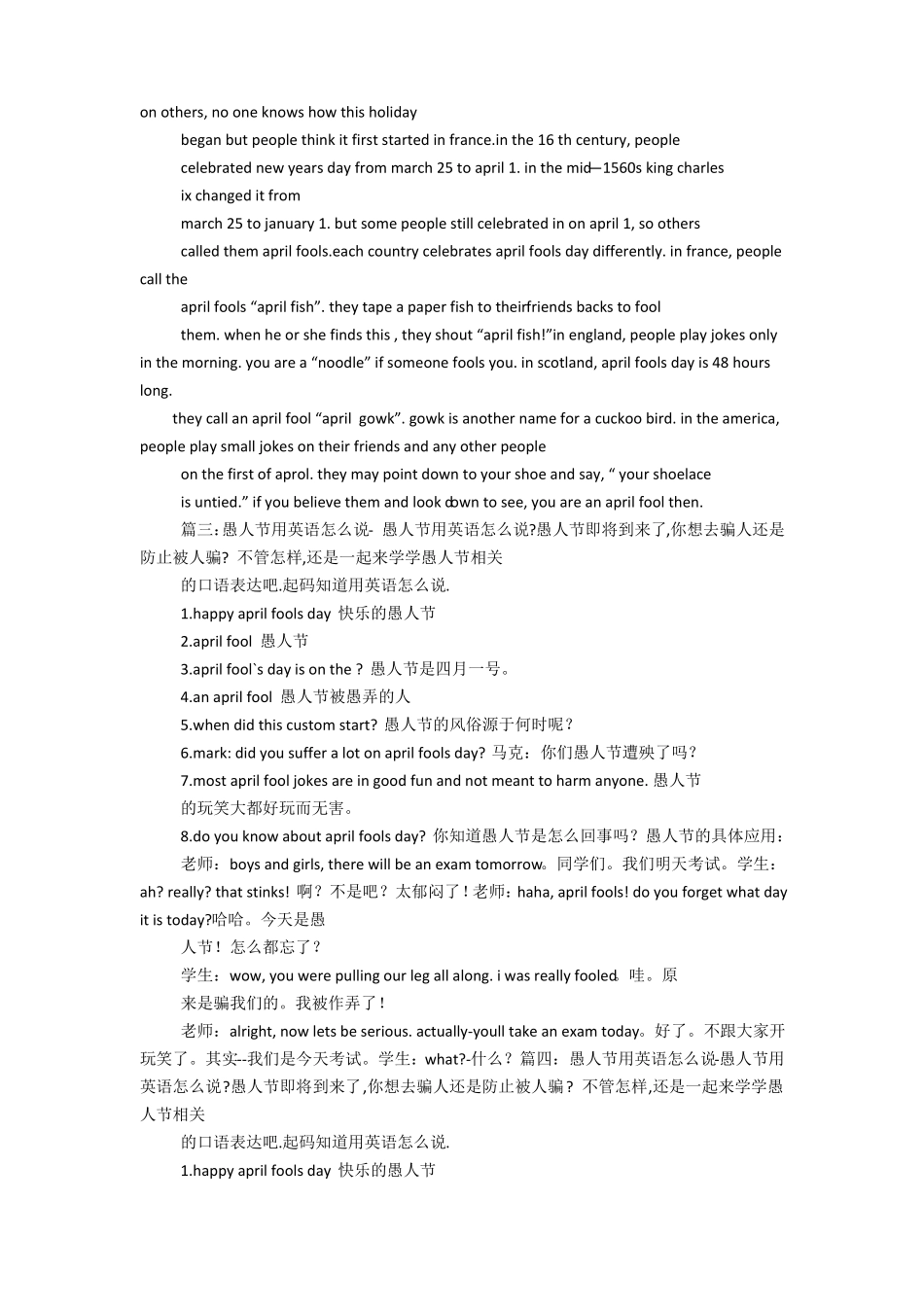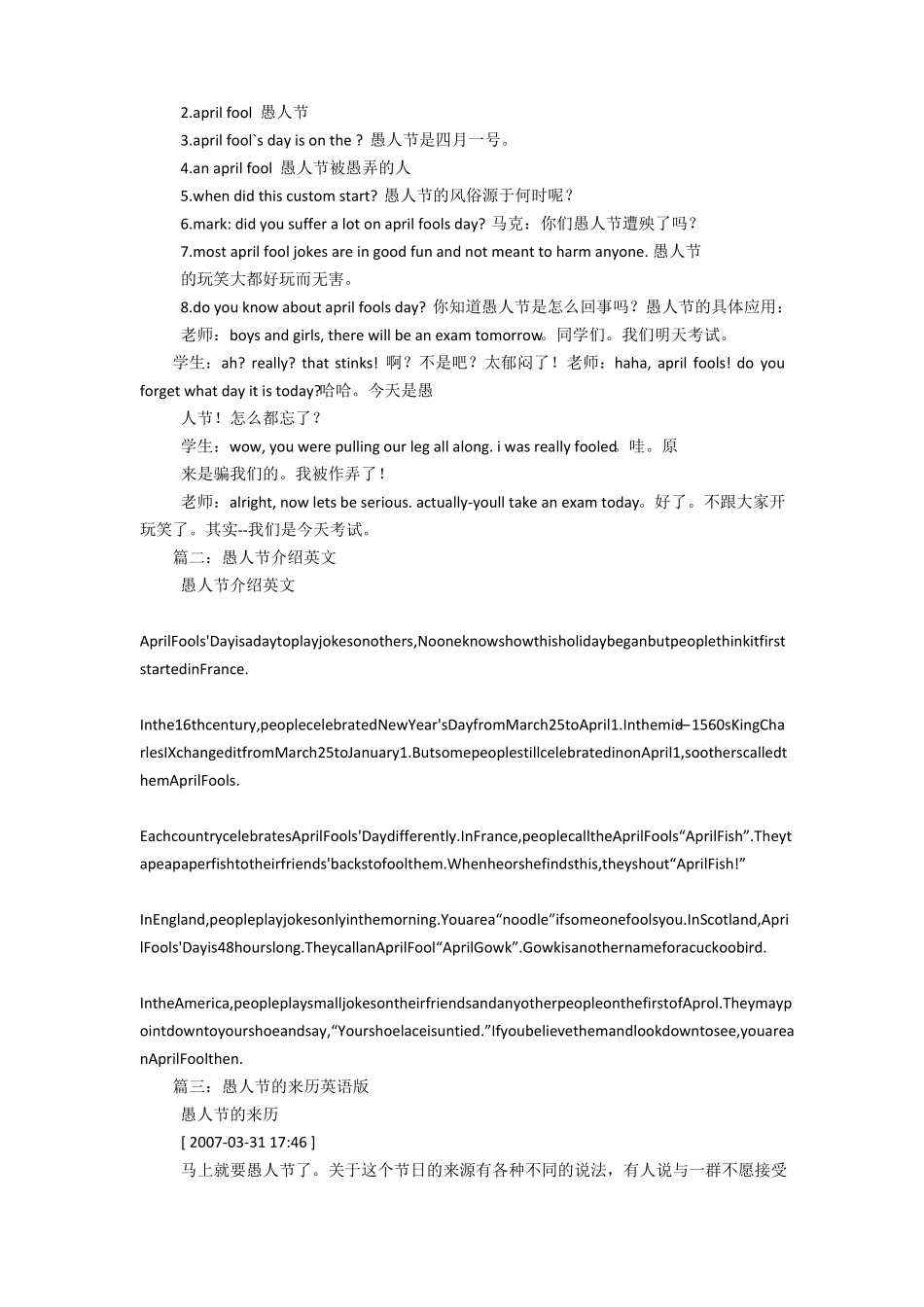愚人节中英文介绍篇一:愚人节的英语演讲愚人节相关的英语和含义愚人节,是一年中最穷开心的一天。关于愚人节的含义,人们有一个普遍相信的历史。今天就来学学愚人节的英语和含义吧!april fools day, sometimes called all fools day, isone of the most light-hearteddays of the year. some see it as a celebration related to the turn of the seasons,while others believe it stems from the adoption of a new calendar.愚人节的英语是 aprilfools’ day,也叫做 all fools’ day。有些人相信愚人节是为了庆祝季节变更,有些人则相信这是因为年历的变更才形成的节日。ancient cultures,including those of the romans and hindus,celebrated new years day on or around april 1. itclosely follows the vernalequinox (march 20th or march 21st.) in medieval times, much of europe celebrated march25, the feast of annunciation, as the beginning of the new year. 古代文化,比如古罗马和印度文化,都在 4 月 1 日左右庆祝胡新年。这个日子和春分(3月 20 日或者 21 日)很靠近。在中世纪时期,欧洲大多数国家在3 月 25 日庆祝“圣母领报”,这一天被看作是新年的第一天。in 1582, pope gregory xiii ordered a new calendar (thegregorian calendar) toreplace the old julian calendar. the new calendar called for new years day to becelebrated jan. according to a popular explanation, many people either refused toaccept the new date, or did not learn about it, and continued to celebrate new years dayon april 1. other people began to make fun of these traditionalists, sending them on fools errandsortrying to trick them into believing something false. eventually, the practice spreadthroughout europe.1582 年,罗马教皇格利高里八世创立了罗马纪年法,来代替凯撒制定的儒略历。罗马纪年法将 1 月 1 日定为新年。人们相信,当时有一些人拒绝接受新年 历,或者他们根本不知道新年历,他们仍然在 4 月 1 日庆祝新年。另外一些人便开始嘲讽这些坚定的传统主义者,愚弄他们,差遣他们,或者扰乱他们...


